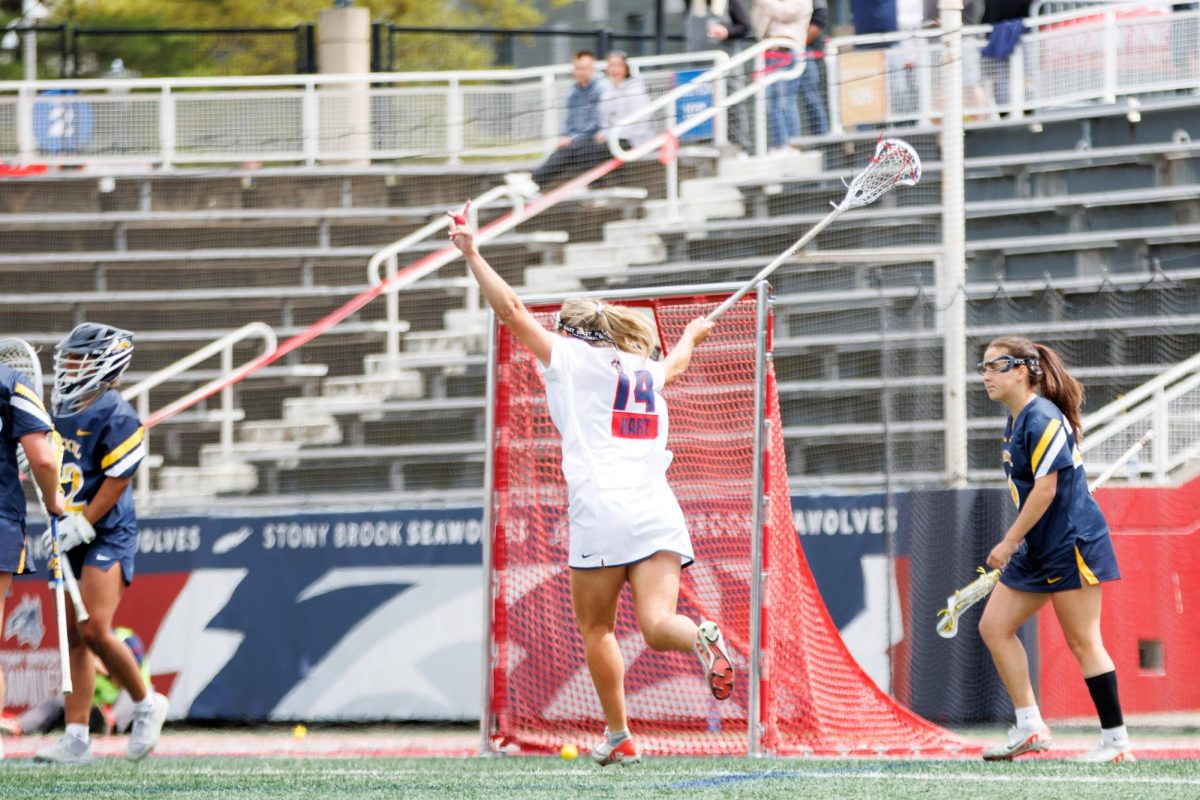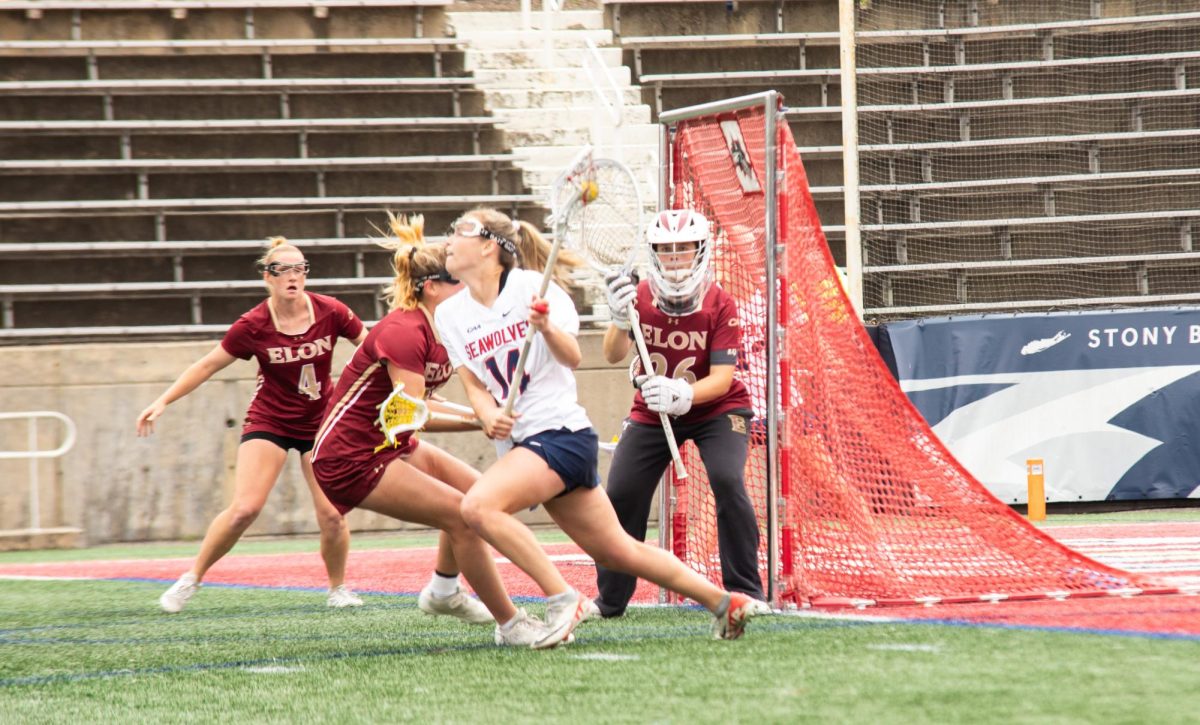“I’m working my way through school.”
As college students, many of us understand the financial pangs that come along with tuition, the cost of books and living expenses, which have us on a penny-pinching diet of ramen noodles and constantly balancing class assignments with internships that are little more than slavery and minimum-wage jobs that leave us depressed come payday.
Many of us are working our way through school.
And yet, the idea has become a cliché and a joke associated with the young women who choose to take their clothes off in places that many of us would refer to as strip clubs.
Maybe we think it is a lie, an excuse to justify why these women do what they do or a way to exude sympathy from customers in order to get tipped better. Maybe we have all stigmatized such a profession as a way to feed drug habits and daddy issues.
We all know how hard it is to survive as college students, so why is it so hard for us to think that the young woman sitting next to us in Javits 101 takes her clothes off to pay for tuition, not drugs or alcohol?
I wanted to meet a real-life college student who chooses to work as an exotic dancer. So, like any journalist, I swallowed my embarrassment of calling a local Gentleman’s Club and stammered my way through a request to speak to some of the dancers who are also students.
To my surprise, the manager didn’t tell me off and hang up the phone. In fact, he was really nice and told me to come in whenever I wanted to.
“Just two rules,” he said. “No real names and no pictures.”
Fair enough.
So on Thursday afternoon, I pulled my hair into a bun, washed all the makeup off my face, button up a cardigan, wrapped a scarf around my neck and decided that I looked enough like a young professional to walk into a strip joint without being asked if I was looking for a job.
It didn’t really work.
I walked into Blush in Commack, N.Y. with my best business face. Five o’clock on a Thursday afternoon isn’t exactly a hot time of day for places like this, but one young woman danced in nothing but her panties in the middle of the room. A few patrons watched; some didn’t notice at all.
After shaking hands with Jerry, a manager of the club with a well trimmed beard and salt-and-pepper hair we made small talk and friendly formalities.
“What are you studying?” he asked me.
“Journalism and sociology,” I replied.
“What do you do with a degree in sociology?”
“Honestly, not much.”
“Have you thought about dancing?”
“Um … Not really, but, uh, trust me, you don’t want me I’m a terrible dancer.”
“They all are when they start out.”
Officially awkward? Check.
Jerry gave up on the recruitment session and introduced me to Ivy.
She sat next to the bar, drinking a diet coke with lemon. She didn’t chat up the patrons or really make eye contact with any of them.
She was 19, a student at Suffolk Community College with short brown hair and rectangular glasses, which she left on when she politely excused herself to go dance after hearing the music come on for her set.
I watched her for 10 minutes, half embarrassed, as she danced on the stage and climbed the metal poles, gracefully sliding down each one with her back arched and simultaneously removing her pink bikini top.
When she was done she went around to each patron, smiled, arched her back and unceremoniously accepted a tip.
“How are you doing today?” she asked one patron.
“Fine, you?”
“A little tired,” she said with a laugh and walked away, moving around the bar to next man holding a $10 bill.
When she sat back down, I felt this absurd need to smile at her and tell her that what she did was awesome. She brushed it off; maybe she didn’t really believe me.
“I hate working here, but it’s better than minimum wage,” she said. “It’s not like I was 10 years- old and was like ‘Mom! I want to be a stripper when I grow up!’”
She’s just a typical 19- year-old kid, a young woman who babysits her neighbors, has had a boyfriend for the past six months who she met through a mutual friend, a 16 year-old sister and a Shakespeare quote tattooed against her ribcage.
“I actually have really bad social anxiety,” she said. “But when you’re here, it’s like an alternative universe.”
For Ivy, balancing a job, classes and a boyfriend became too much last semester and she lost her Financial Aid.
“I have tuition to pay for. I have a car; I have to pay for gas,” she said. Her divorced parents pooled their funds together and helped her to pay for school this semester, but like many 19 year-olds, she’s semi-independent with her finances.
What was supposed to be a serious interview turned into girl-talk. I wanted to know about her life, and she wanted to know about mine. In the end, we were both young women who grew up only a few miles from each other, went to school down the road from each other and both had sisters.
I asked her about what she wanted to do when she grew up, and she became more animated and excited. She told me about how she wanted to study psychology, how she had originally wanted to go into drug counseling after she watched a cousin go through rehab, but she had a fascination with serial killers and wanted to be a forensic psychologist.
“It’s crazy to think about what drove Hitler to want to kill six million Jews and create this ideal race of blond-haired, blue-eyed Germans, when he didn’t fit any of those characteristics,” Ivy said.
I told her that as a sociology major, I was interested in the same things she was, but from a different perspective.
It was the most interested she had looked all night.
We were approached by two older gentlemen, asking me why I was taking notes. She didn’t even really try to chat them up; she didn’t really want to be there at all.
They eventually left us alone, and I asked her why she stayed.
She said that, on a good night, she can make up to $600 a night and that sometimes what she does is “invigorating.”
Ivy’s music came back on. It had been two hours, and it was her turn to dance again. She invited me to come sit onstage and watch from a different perspective.
“It’s really great to see everyone’s faces when you’re up onstage—sometimes they’re not even looking at you,” she said with a laugh.
I declined, too embarrassed. By now, the bar was full. There were some older men, some younger; some men even came in with their wives.
I smiled and told that her that I’d be back to finish my story, like an old friend who said they’d stop by again. She smiled like she hoped I might.
Ivy began to dance onstage again; I began to pack my bag, feeling like a guest who had somehow overstayed her welcome in someone’s life.
To a lot of people, it’s a joke and a cliché, but for Ivy it’s a reality. She dances to put herself through school, but if I ever met her on the street, I would have no idea.






